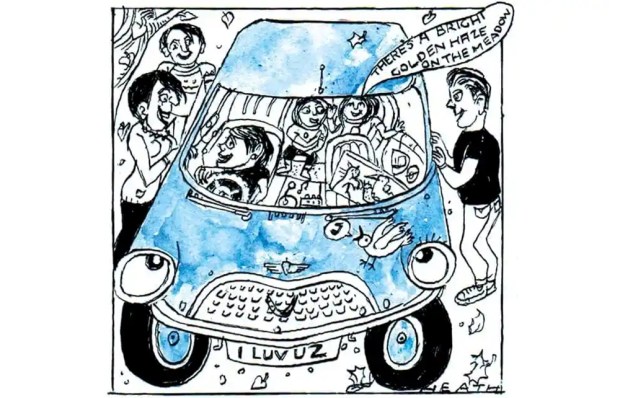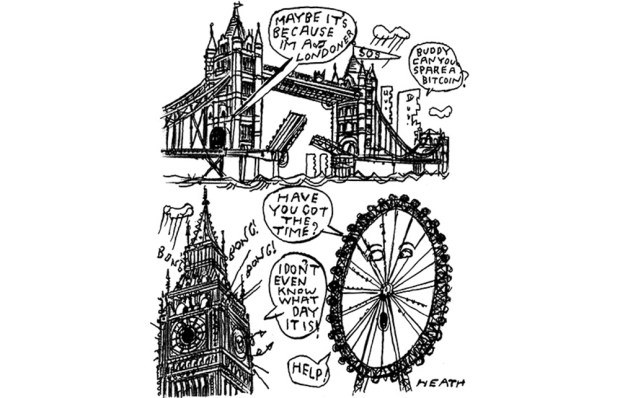There was a reason 18th-century rulers were eager for their subjects to grow and eat potatoes: the miraculous tuber offered an alternative source of nutrition to grain, hence reducing bread prices. In the event of a catastrophic harvest, people could survive. To the rulers themselves, however, the biggest benefit was probably what happened when the grain harvest was merely disappointing. With grain no longer critical to survival, the price of bread would be far less volatile. And high bread prices might be more likely to lead to civil unrest than no bread at all.
Humans evolved to be foraging omnivores, but agriculture made us over-reliant on whatever crop could best be grown nearby. The potato rebalanced that. Being a monovore is never a good plan in the long term. Notice that koalas, despite having opposable thumbs, have never successfully colonised distant continents or developed extensive worldwide trade networks. Had they done so, it is likely that eucalyptus leaf prices would have been very volatile indeed, quite possibly manipulated by some shady koala cartel.
Rather like oil. Today there is wiggle-room for many people when food prices go up. By contrast, oil and gas prices affect the price of everything – of accommodation, of durable goods, of transportation – and indeed of food.
I make this point to explain why, regardless of any environmental considerations, a partial shift towards electrification of cars may be a good thing. The internal combustion engine is a koala – a monovore. Oil or nothing. By contrast an electric car motor is like an external combustion engine. It is effectively omnivorous, able to run on whatever form of energy – from gas to solar to nuclear – that’s abundant or cheap. Early US steam locomotives switched from burning coal to wood as they headed west away from coalfields. Such flexibility is valuable in itself. EV batteries can also store surplus energy generated overnight.
It’s time we made a patriotic case for electrification alongside the environmental one. Not only is the diesel engine the only form of mechanical propulsion not to be invented in the UK, and hence inherently ungodly, but Britain has a huge potential advantage over many other countries in being able to achieve a more balanced energy diet. We have a lot of offshore wind, for one thing, and a healthily small Green party. This means we do not all don PLO scarves and face-paint at the sight of a nuclear power station. The net effect of this is that we might be able to power the country without funding our enemies.
Again, we do not need every vehicle to be electric for this. (Why must we always assume either/or when the answer is both/and?) It pains me when I write about electric cars and the online comments field turns into a fight between supporters and opponents of electrification. Such infighting risks allowing half a million metropolitan idiots to indulge their socialistic fetish for mass transit by playing divide and rule over the 50 million other Britons who know that the car, van and taxi, however they may be powered, are essential to any recognisably pleasant future. We all know this – yet when did you last hear anyone say we need to build more roads? With more roads, we could build more houses. In fact we could sell the houses to pay for the roads. (Google Henry George for more.)
Of course, other forms of transport have their place. Trains are great for commuting and long journeys. And bikes are wonderful for able-bodied middle-class people aged between 15 and 45, undertaking a journey of under three miles, with no luggage or children or shame, in dry, warm weather in a place with no hills. But for 80 per cent of people 90 per cent of the time, only a car will do. We need to say this more loudly and more often.
Got something to add? Join the discussion and comment below.
Get 10 issues for just $10
Subscribe to The Spectator Australia today for the next 10 magazine issues, plus full online access, for just $10.
You might disagree with half of it, but you’ll enjoy reading all of it. Try your first month for free, then just $2 a week for the remainder of your first year.















Comments
Don't miss out
Join the conversation with other Spectator Australia readers. Subscribe to leave a comment.
SUBSCRIBEAlready a subscriber? Log in